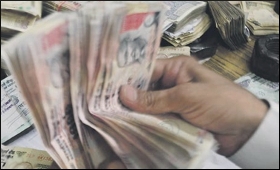|
|
|

|
'Expanded ECLGS a lifeline for sectors hit by second wave'
|
|

|
|
| Top Stories |
 |
|
|
|
SME Times News Bureau | 02 Jun, 2021
The expansion of the Emergency Credit Line Guarantee Scheme (ECLGS)
announced by the government on May 30, will help companies in sectors
such as civil aviation, hotels and tour operators, where demand has been
severely affected by the intense second wave of the Covid-19 pandemic,
Crisil said on Wednesday.
The scheme will also support build-up
of healthcare infrastructure, mainly oxygen availability, in Tier 2 and
beyond cities, and the hinterland.
The scope of the scheme, first
announced on May 13, 2020, has been continuously expanded. The latest
version will be valid up to September 30, 2021, or till the unutilised
amount of Rs 3 lakh crore is exhausted, whichever is earlier.
More
sectors have been brought under the scheme's ambit, some eligibility
criteria relaxed, and micro, small and medium enterprises (MSMEs) have
been allowed to avail of loans for longer tenures. The scheme has
sanctioned Rs 2.54 lakh crore of loans under the previous three
versions, as of mid-May.
The revised scheme has included the
civil aviation sector - airlines and airport operators - and also eased
the eligibility criteria for companies in the hospitality, travel and
tourism, and leisure and sports sectors.
All these have been hit
hard by the second wave. In the current quarter, these sectors are
expected to see a demand contraction of over 30 per cent sequentially,
Crisil said.
Moreover, except for airport operators, many
companies in the other stipulated sectors of the scheme have high
leverage, which constrain their ability to withstand unexpected demand
contraction.
The average leverage of Crisil-rated companies in
these sectors is estimated to be more than 2.5 times versus 1.5 times
the aggregate corporate sector portfolio as on March 31, 2021. Thus, the
longer tenure of credit of six years, including a two-year principal
moratorium under the scheme, will support liquidity in the current
volatile business environment.
Crisil Ratings Ltd's Chief Ratings
Officer Subodh Rai said: "The civil aviation sector, in particular, has
been severely dented by the current embargo on international flights
and very weak domestic demand. Passenger traffic is expected to more
than halve this quarter sequentially. It will take at least two
quarters for demand to recover to January-March 2021 levels.
"The
move to include civil aviation in the scheme will provide the sector
much-needed liquidity support amid materially constrained cash
generation ability due to several localised lockdowns."
Besides,
under ECLGS 4.0, capacity enhancement of oxygen-generating plants will
receive a boost, with funding up to Rs 2 crore being made available at
low interest rates capped at 7.5 per cent. The loan will be for a
maximum five years, including six months of moratorium on principal
repayment.
Mid-sized and small hospitals, especially in Tier 2
and beyond cities, and the hinterland, are expected to be the major
beneficiaries because their borrowing capacity tends to be weaker due to
relatively constrained credit profiles.
Moreover, banks and
financial institutions will also be more inclined to lend to them
because ECLGS borrowings are backed by sovereign guarantee, which
mitigates the credit risk for the lending institution.
Crisil
Ratings Director Nitin Kansal said: "The increased availability of funds
at a low cost will incentivise hospitals, especially in semi-urban
areas and beyond, to augment oxygen generation capacity. Our study shows
utilising Rs 1,000 crore can provide oxygen support to nearly 1 lakh
beds and go a long way in preparing the country's health infrastructure
for future pandemic waves."
While the terms of the scheme are
attractive, hospital companies will have to carefully evaluate spending,
keeping in mind the sustainability of demand and overall viability of
investments.
The revision in the ECLGS framework will also
benefit MSMEs borrowers that availed of the 1.0 scheme, provided they
are eligible under the Reserve Bank of India's restructuring 2.0
framework.
Now, the moratorium on principal repayment and
overall loan tenure have both been extended by a year, which will
provide much-needed support to tide over the ongoing volatility in the
business environment.
|
|
|
| |
|
|
|
|
|
|
|
|
|
|
|
|
|
|
| |
| Customs Exchange Rates |
| Currency |
Import |
Export |
US Dollar
|
66.20
|
64.50 |
UK Pound
|
87.50
|
84.65 |
Euro
|
78.25
|
75.65 |
| Japanese
Yen |
58.85 |
56.85 |
| As on 13 Aug, 2022 |
|
|
| Daily Poll |
 |
 |
| PM Modi's recent US visit to redefine India-US bilateral relations |
|
|
|
|
|
| Commented Stories |
 |
|
|
|
|
|
| |
|